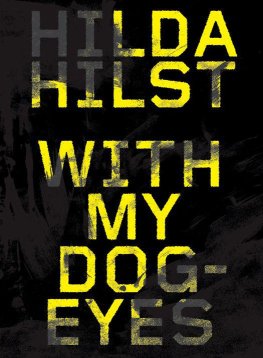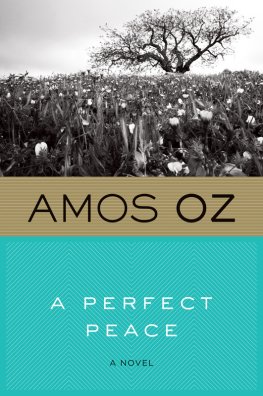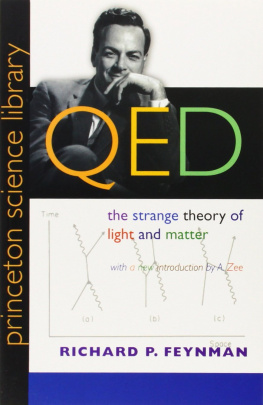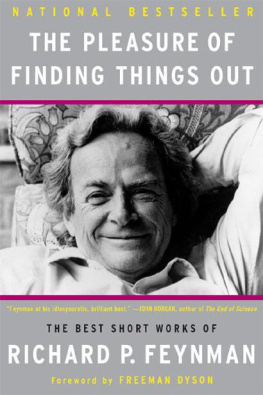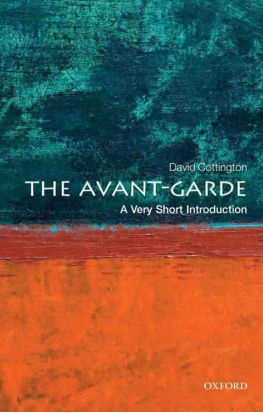Hilda Hilst
With My Dog Eyes
For many years toward the end of her life, Hilda Hilst spent every evening getting drunk on cheap whiskey, drunk to the point of not remembering the things she said or the fights she provoked. I drink because its the only way I can tolerate reality, she told a close friend and longtime resident of the Casa do Sol (The House of the Sun), the secluded estate where she lived and wrote for nearly forty years. There, surrounded by a rotating cast of friends, bohemian artists and poets, and a pack of dogs sometimes numbering more than one hundred, Hilda Hilst produced one of the most ambitious and original bodies of work in Latin American literary history.
Hilst had been born into one of the oldest and wealthiest families in Brazil, an heiress to the lands, if not the fortunes, of a So Paulo coffee dynasty. Her father, Apolnio de Almeida Prado Hilst, was a writer as well as a coffee baron. Hilst revered her father, and throughout her life attributed her prodigious literary talent to him. Unfortunately, mental illness also ran in the family for generations, and Hilsts father was diagnosed with paranoid schizophrenia shortly after her parents separated, when she was only two years old. Her mother also later suffered from dementia, and ended up confined in the same sanatorium to which her father had been committed years before. The specter of madness would loom over Hilsts entire career as a writer, inflecting her work with themes of insanity and contributing to her formidable reputation as an eccentric recluse.
After primary schooling in So Paulo province and secondary education in the city, Hilst studied law at the distinguished University of So Paulo. Class privileges allowed her to circulate among the elite, where she was acknowledged as one of the most beautiful women of her generation in 1950s Paulista high society. Though her suitors courted her with jewels and furs, Hilst chafed at the constraints of bourgeois values, choosing instead to smoke and drink in the company of writers and artists at a time when such behavior was considered worthy of prostitutes. Hilst had little patience for the sexual mores of her caste, and her sexual freedom became as well-known as her glamour and irreverent intellect.
By her early thirties, Hilst had abandoned a prestigious law career and promising marriage prospects, published a few books of poetry to critical praise, and traveled Europe. While in Paris, she stalked the filming of a Marlon Brando movie, determined to seduce the American actor. Though the affair was ultimately frustrated, she went so far as to bribe Brandos doorman and date his friend Dean Martin in an effort to get closer to the star. Upon her return, Hilst settled in So Paulos bohemian district, having decided to be a writer. It was only after reading Nikos Kazantzakiss Report to Greco that she resolved to devote the rest of her life every hour of it to literature, and that to do so meant renouncing even the salons of bohemia. She constructed the Casa do Sol on inherited coffee fields near the regional city of Campinas as a home for her literary work. Once established on the estate in 1965, Hilst seldom left it, detesting even short journeys into Campinas. The coiffed and manicured former debutante let her hair grow long and cast aside couture and jewelry in favor of simple robes. She had gone to the Casa do Sol, she said, to make myself ugly.
The tenacity with which Hilst maintained this retreat earned her a reputation as a hermit madwoman in the So Paulo circles she had forsaken, but she was seldom alone. Though methodic about her work and defensive of the solitude in which she wrote, Hilst also took pride in her role as matriarch of what she called the elective family of artists and writers that came to live in the Casa do Sol: it was her lifelong repudiation of traditional family values. Even Hilsts marriage, to the sculptor Dante Casarini, was unconventional. During many of the years of their marriage, Dante lived in a house nearby, Hilst having jilted him for a younger man. The couple had also discovered that cohabitation was incompatible with Hilsts rigorous devotion to her craft. Highly knowledgeable in matters of astrology, Hilst attributed her stringent work ethic to the zodiac. She believed that writing caused an intensification of her Taurine traits, though this was perhaps an excuse for the imperious and gruff severity with which she dismissed anything or anyone standing in the way of her creation. Hilst and Casarini eventually divorced in 1985, and though Hilst had taken other lovers, Dante remained a close friend and presence at the Casa do Sol throughout her life.
Members of Hilsts elective family also included aspiring young poets who admired her ferocious dedication to her art. They turned up in Campinas hoping to be apprenticed to Hilst and offering to serve as personal secretaries or as one of them put it to her over the telephone when he called to seek her mentorship, offering to be the Beckett to her Joyce. The habit of sheltering beautiful young men, many of them gay, only contributed to Hilsts notoriety. But she set her poet-apprentices to work, summoning them to read her poems aloud to her: it was her preferred method of editing her verses. For Hilst, poetry existed primarily as sound.
Among these young assistants was Caio Fernando Abreu, who would go on to become one of Brazils most renowned poets. Appearing on Hilsts books, Abreus accolades helped generate a devoted following for her work. For her love of the human condition, Hilda writes, Abreu wrote on the jacket flap of the original edition of Hilsts first novel, The Obscene Madame D (1982). One eye on the divine, the other on Astaroth. No one escapes her unharmed. As no one escapes unharmed, at its end, from life itself. For those uninitiated in demonology, Astaroth is a crown prince of hell. While this might seem an overly dramatic introduction to a writer, Abreus description gets to the core of Hilsts project: it is the dark heart of the human experience that compels her. Nor is demonology far afield from Hilsts literary excursions into Gnostic philosophy and theology; writers such as the famed British occultist and magician Aleister Crowley undoubtedly influenced her writing.
Hilst read copiously and ecumenically, seldom without a pen in hand. Many of the books in the personal library she left behind at the Casa do Sol, now yellowing with age from the tropical humidity, are annotated and underlined, leaving clues to Hilsts scattered studies over the course of four decades. Her library reveals deep interest in Bertrand Russells writings on mysticism and the irrational, fascination with Elias Canettis Crowds and Power, and a long-standing predilection for Jungian psychology. Hilst also nourished an obsession for Allan Kardec, the nom de plume of French polymath and spiritist Hippolyte Lon Denizard Rivail. Kardec commanded immense celebrity in nineteenth-century Brazil, and his books remain popular there today. Hilst also read Freud, but her taste in psychoanalytic theory was for Otto Rank, whose 1926 book on pre-Oedipal separation anxiety, The Trauma of Birth, spoke profoundly to a woman whose literary and private writings were forever marked by the absence of her father. Rank was also the preferred analyst of several bohemian writers whom Hilst admired, having analyzed Henry Miller and Anas Nin two of Hilsts most cherished inspirations in both literature and life at his practice in Paris. Jewish American anthropologist Ernest Becker, to whom With My Dog-Eyes is dedicated in memoriam, was also a powerful force in shaping Hilsts unusual understanding of the human psyche.
Over a career that spanned nearly fifty years, Hilsts literary work grew to more than twenty volumes of poetry, theater, and narrative prose. Although she enjoyed the esteem of a cadre of So Paulo poets and writers, and quietly amassed all of the countrys most prestigious literary awards, Hilsts work was little-read in Brazil and remained, until recently, mostly untranslated. This was partly due to the authors own inflexible editorial decisions: Hilst scorned mainstream publishing houses as bourgeois and instead published small artisanal editions featuring her artwork and that of her friends. She would later claim, however, that literary publishers had turned her down. This is not hard to imagine, given that the frank sexuality of her work brazenly transgressed the patriarchal order that held sway in Brazilian letters through most of Hilsts lifetime. In any case, her books were difficult to find, and not as widely distributed as those of her contemporaries. Even more challenging are the texts themselves, whose prolific allusions and dense stylistics require a degree of literary cultishness that Brazil a country whose inequality and illiteracy rates were until recently some of the worst in the world did not afford.

